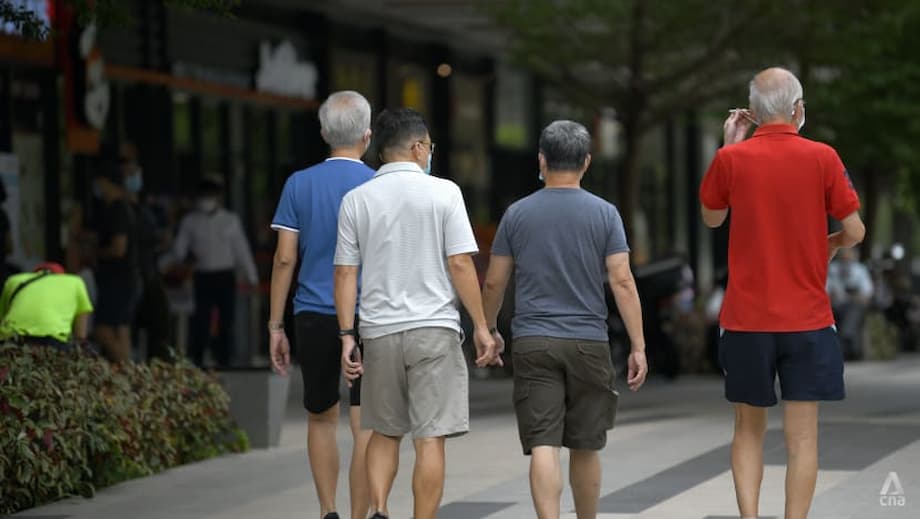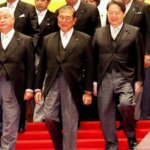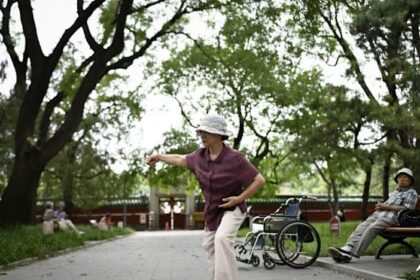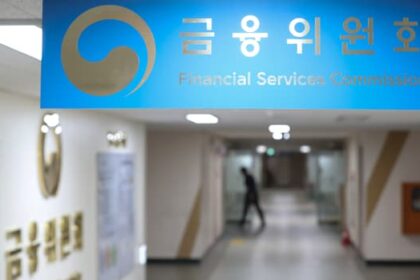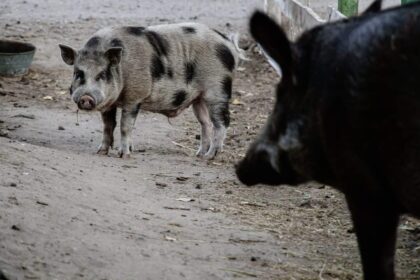Singapore’s Super-Aged Challenge: Why Senior Men Must Not Be Left Behind
Singapore stands on the cusp of a demographic transformation. By 2026, more than one in five residents will be aged 65 or older, officially making the city-state a “super-aged” society. This shift brings both opportunities and challenges, especially in ensuring that all seniors—not just the most visible or active—enjoy a purposeful, connected, and healthy later life. Among the most pressing concerns is the persistent disengagement of senior men from community life, a trend with serious implications for their well-being and for society at large.
- Singapore’s Super-Aged Challenge: Why Senior Men Must Not Be Left Behind
- Why Are Senior Men Less Engaged?
- Innovative Approaches: Meeting Men Where They Are
- What Does the Research Say? Gender, Social Participation, and Health
- Policy and Community: Building Age Well Neighbourhoods for All
- Broader Implications: Lessons for Singapore and Beyond
- In Summary
Prime Minister Lawrence Wong’s recent National Day Rally highlighted the government’s commitment to building Age Well Neighbourhoods: vibrant community spaces designed to support seniors’ health, social engagement, and independence. Yet, as Mr Wong and many experts have noted, these initiatives often attract far more women than men. Understanding—and addressing—this gender gap is crucial for Singapore’s ageing strategy to succeed.
Why Are Senior Men Less Engaged?
The underrepresentation of men in senior activities is not unique to Singapore, but it is particularly pronounced here. Studies and on-the-ground observations reveal several interlocking reasons:
- Traditional Masculinity and Social Norms: Many older Singaporean men grew up in a culture that prized stoicism, independence, and self-reliance. Emotional openness and seeking support were often seen as signs of weakness. As a result, men are less likely to form deep, supportive friendships or seek out social activities, especially those perceived as “soft” or “feminine.”
- Work-Centric Identities: For generations, men’s sense of self-worth was closely tied to their roles as breadwinners and providers. Retirement can trigger a profound identity crisis, leaving some men feeling adrift and purposeless. Unlike women, who often maintain broader social networks outside work, many men’s relationships shrink after leaving the workforce.
- Activity Preferences: Senior centre offerings—such as crafts, dance, or book clubs—often appeal more to women. Men tend to prefer purpose-driven, physically engaging, or competitive activities, echoing their earlier life experiences in sports, tinkering, or problem-solving.
- Barriers to Entry: The very concept of a “senior centre” can conjure images of frailty and dependency, clashing with ideals of strength and autonomy. Men may also feel like outsiders in predominantly female spaces.
These factors combine to create a quiet crisis: senior men are more likely to experience social isolation, loneliness, and even depression. A 2020 National University of Singapore study found that elderly men living alone were twice as likely as women to feel disconnected. Globally, loneliness among older adults is a major health concern, linked to higher risks of depression, cognitive decline, and even suicide. In Singapore, men accounted for over 64% of suicide deaths among seniors last year.
Innovative Approaches: Meeting Men Where They Are
Recognizing these challenges, community organizations, government agencies, and creative partners are piloting new ways to engage senior men—often by reimagining what “active ageing” can look like.
Male-Centric Activities: From Circus Skills to Carpentry
One standout example is the Senior Gentlemen’s Circus at Goodlife Studio in Telok Blangah. Here, men in their 60s and 70s learn diabolo tricks, juggling, and other circus acts. The program, supported by the Lien Foundation, is designed to rekindle youthful energy, provide physical and mental challenges, and foster camaraderie. Participants report improved coordination, concentration, and new friendships—often lingering after class for coffee or chess.
Other male-friendly initiatives include:
- Strength Training: The Gym Tonic program, also by Lien Foundation, focuses on building physical strength and confidence, attracting thousands of senior men annually.
- Gentlemen’s Brew: Weekly coffee gatherings offer a relaxed, familiar setting for men to socialize.
- Men’s Clubs: At Allkin’s centre in Pasir Ris, men plan and run their own activities, from cycling to chess to repair work, and volunteer to help less mobile neighbours. This peer-led model has expanded to multiple centres.
- Competitive and Purposeful Activities: Memory games, walking soccer, and carpentry workshops tap into men’s preferences for challenge and teamwork.
These programs are not about excluding women, but about broadening the menu of options to include activities that resonate with men’s interests and socialization styles.
Bringing Engagement to Familiar Spaces: The “Kopitiam” Model
For many older men, the local coffee shop—or kopitiam—is a second home. Recognizing this, the Hack Kopitiam project, initiated by the Lien Foundation and design agency Forest & Whale, brings outreach and activities directly to these everyday gathering spots. Students and volunteers build rapport with regulars, introduce creative activities like caricature drawing or stone stacking, and gently connect them to nearby active ageing centres.
This approach acknowledges that not all seniors are ready or willing to join formal programs. By meeting men where they already feel comfortable, and leveraging the social networks of stall operators and regular patrons, Hack Kopitiam has successfully reached hundreds of previously unengaged seniors—many of whom now participate in centre activities or even become trainers themselves.
Creative and Cultural Engagement: Beyond the Usual
Singapore’s National Museum has also stepped into the arena with Reunion, a dedicated wellness hub for seniors, including those with dementia. Here, seniors can curate digital exhibitions, enjoy nostalgic music, participate in creative workshops, and find a supportive, stigma-free environment. Such initiatives demonstrate that engagement can happen in unexpected places, and that cultural institutions have a role to play in supporting healthy ageing.
Music, too, is a powerful connector. Groups like Jolly Jammers and Heart Drive bring sing-alongs and performances to eldercare centres, lifting spirits and fostering community bonds. For men who may be hesitant to join traditional activities, music and performance offer alternative avenues for participation and self-expression.
What Does the Research Say? Gender, Social Participation, and Health
Academic studies reinforce the importance of tailored approaches. A systematic review published in 2024 found that while both men and women benefit from social participation, their motivations, barriers, and preferred activities differ. Men are more likely to engage in socially active networks and value purpose-driven interactions, while women often prioritize close interpersonal bonds and caregiving roles.
Physical activity is another key factor. Research shows that regular leisure-time physical activity (LTPA) is associated with better health and well-being among older adults. In Singapore, men are more likely than women to participate in LTPA, especially if activities are competitive, challenging, or linked to their interests. However, overall participation rates remain low, highlighting the need for more accessible and appealing options.
Neighborhood environments also matter. Proximity to parks encourages exercise, while kopitiams—though valuable for socializing—can reinforce less healthy habits like smoking. Urban planning and community design must balance these factors, creating spaces that support both physical and social well-being.
Policy and Community: Building Age Well Neighbourhoods for All
Singapore’s government has taken a proactive stance on ageing, with initiatives like Age Well SG, the Action Plan for Successful Ageing, and the expansion of Active Ageing Centres (AACs). These efforts aim to empower seniors, support caregivers, and foster inclusive communities. The Silver Generation Office conducts outreach to connect seniors with services, while the National Silver Academy offers lifelong learning opportunities.
Yet, as policymakers and practitioners acknowledge, infrastructure alone is not enough. Changing societal attitudes, combating ageism, and addressing the unique needs of different groups—especially senior men—are essential. As Prime Minister Lee Hsien Loong has emphasized, “It is not so straightforward to address the challenges of an ageing population… If we can do all these things right… then we stand a good chance of realising the alternative scenario… where seniors are healthy, savvy, actively engaged in productive and meaningful activities, and well-respected.”
Community-driven models, peer-led groups, and partnerships with cultural and religious organizations all play a role. Volunteering, intergenerational activities, and informal gatherings can be as valuable as structured programs. The key is flexibility, creativity, and a willingness to challenge stereotypes about ageing and masculinity.
Broader Implications: Lessons for Singapore and Beyond
Singapore’s experience is closely watched across Asia, where many societies are ageing rapidly but struggle to adapt. The region faces a dual challenge: rising healthcare and pension costs, and a growing number of seniors—especially men—who are cut off from social support and community life. The lessons learned here have relevance far beyond the city-state’s borders.
Globally, loneliness among older adults is a public health issue of growing concern. A recent meta-analysis found that nearly 28% of seniors worldwide experience loneliness, with men who live alone or are widowed at particular risk. Addressing this requires not just services, but a cultural shift: valuing seniors’ contributions, supporting diverse forms of engagement, and recognizing that ageing well is about more than just physical health.
In Summary
- Singapore is becoming a super-aged society, with over 21% of its population soon to be over 65.
- Senior men are significantly less engaged in community activities than women, due to cultural norms, work-centric identities, and activity preferences.
- Loneliness and social isolation among senior men are linked to serious health risks, including depression and suicide.
- Innovative programs—like the Senior Gentlemen’s Circus, Hack Kopitiam, and museum-based wellness hubs—are successfully engaging men by meeting them where they are and offering purpose-driven, male-friendly activities.
- Research underscores the need for gender-sensitive approaches, flexible programming, and supportive environments that value seniors’ diverse interests and experiences.
- Government policy, community outreach, and creative partnerships are all essential to building Age Well Neighbourhoods that include and empower senior men.
- Singapore’s efforts offer valuable lessons for other rapidly ageing societies facing similar challenges.


